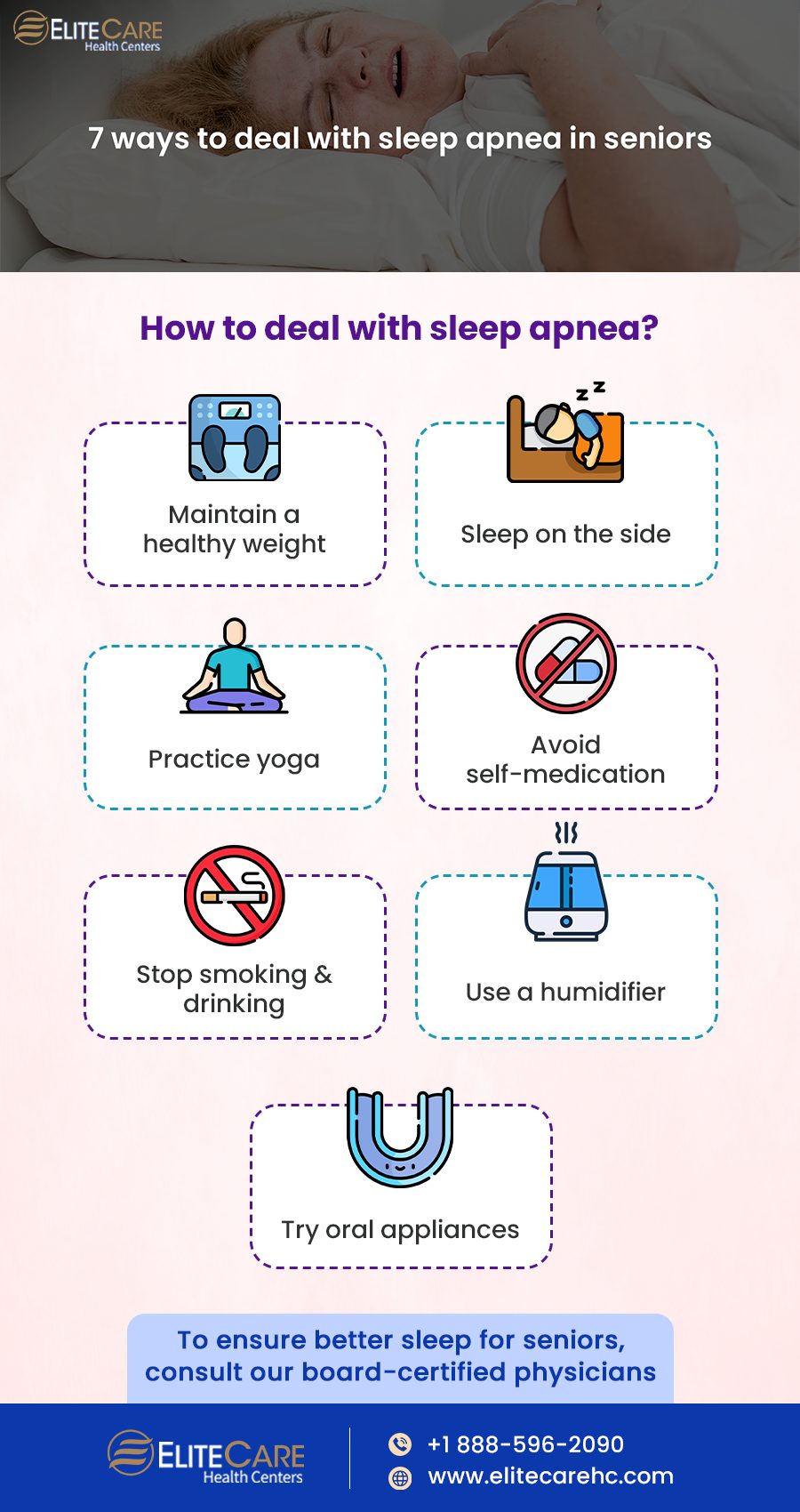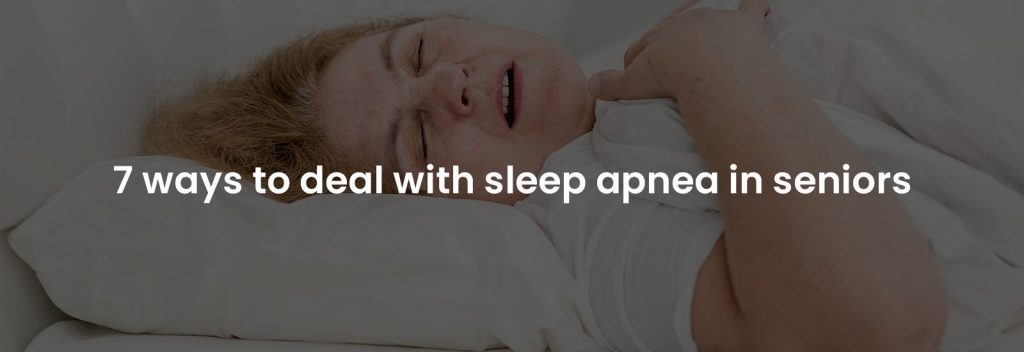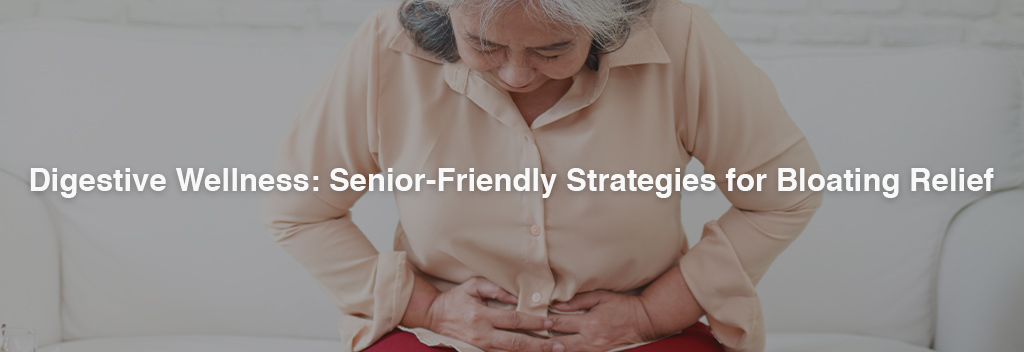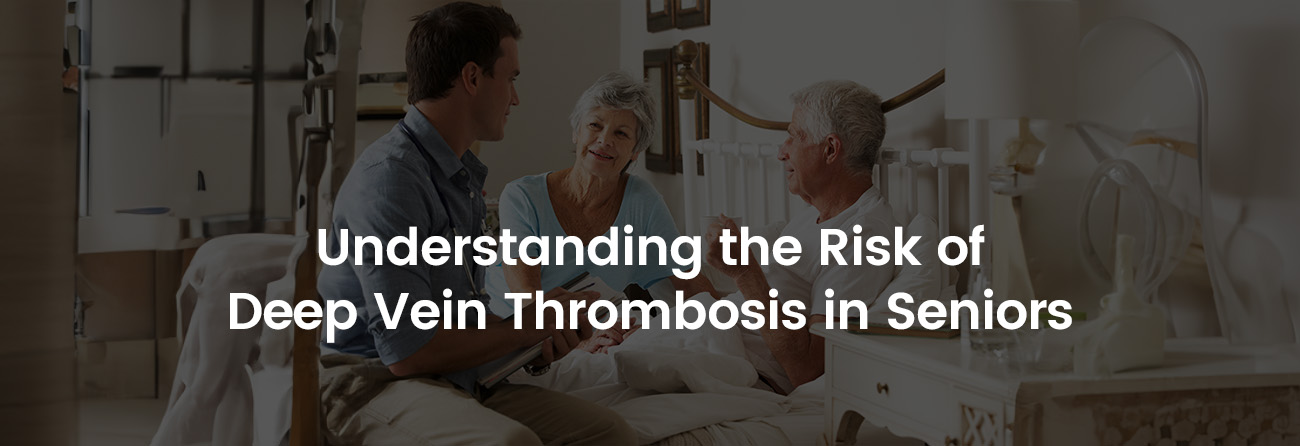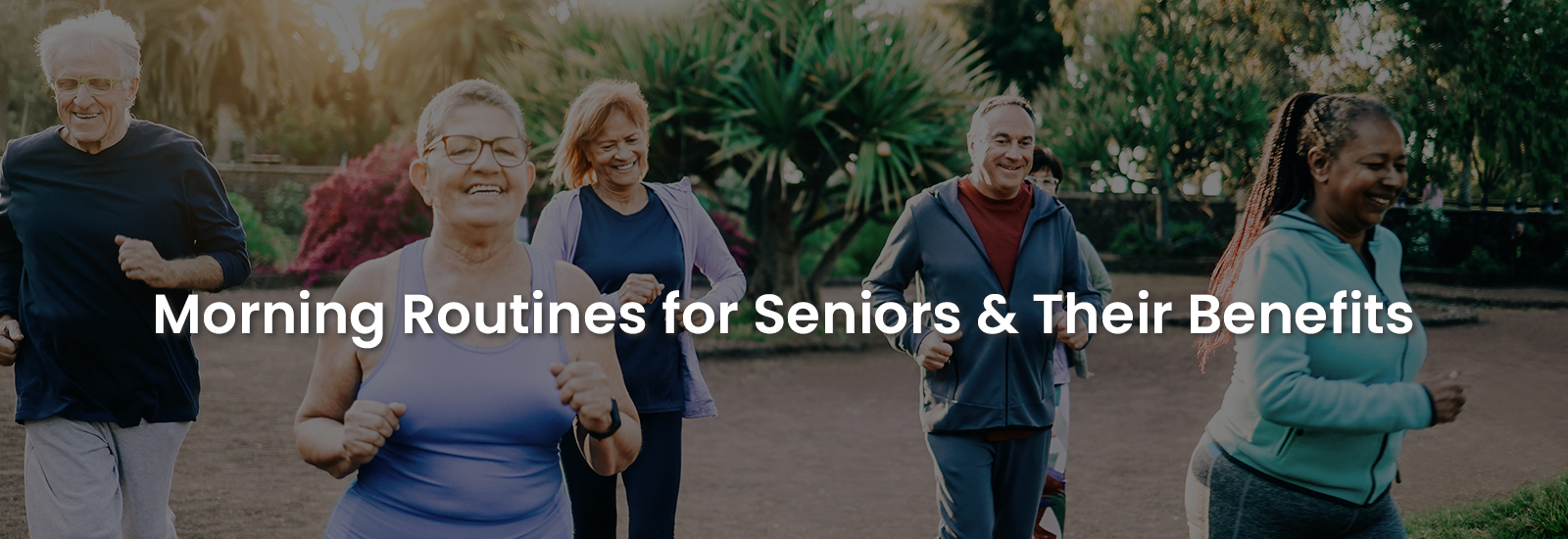
Older adults often suffer from sleep disorders that eventually lead to other health complications. Sleep apnea is one of the most common sleep-related problems, affecting up to 20 percent of seniors in the United States. But due to the lack of awareness around this health issue, approximately 80% of cases remain undiagnosed every year. To help those affected and to enable them to deal with the problem, it is crucial to understand what sleep apnea is, how a caregiver can recognize the symptoms and how to deal with it. Take help from doctors and senior care services if the problems escalate.
What is sleep apnea?
Sleep apnea is a chronic breathing disorder in which one experiences an interruption in breathing during sleep – due to a partial or complete obstruction of the upper airway. Those suffering from sleep apnea don’t take in enough oxygen when they sleep and wake up gasping – frequently.
In some cases, seniors think that their sleep cycle is normal, not realizing that they have stopped breathing in their sleep. This is one of the key reasons why sleep apnea remains undetected for a long time and leads to further health complications. If not addressed, the patient can even suffer from a serious cardiac event such as a heart attack due to lack of oxygen. If left untreated, this sleeping condition can increase the risk of the following health complications:
- Mental health issues
- Poor immune function
- Memory loss
- Heart failure
Read More: 8 Ways to Manage Headaches in the Elderly
Common signs of sleep apnea
The symptoms of sleep apnea are similar for both older and younger people. Watch out for the common signs of sleep apnea which are as follows:
- Loud snoring
- Choking or gasping during sleep
- Pauses in breathing during sleep
- Frequently waking up at night
- Dry throat or mouth
- Racing heart rate during sleep
- Night sweats
- Excessive daytime sleepiness
- Morning headache
- Poor memory and concentration
- Irritation and mood swings
Most of these symptoms are like the signs of other sleep disorders like insomnia. If seniors exhibit any of these symptoms, consult a doctor immediately.
How to deal with sleep apnea?
The most traditional treatment for sleep apnea is wearing a CPAP mask at night to help the patient breathe better. However, seniors may find this mask uncomfortable and have difficulty falling asleep with it. Hence, follow these suggestions along with the use of CPAP mask to get better sleep.
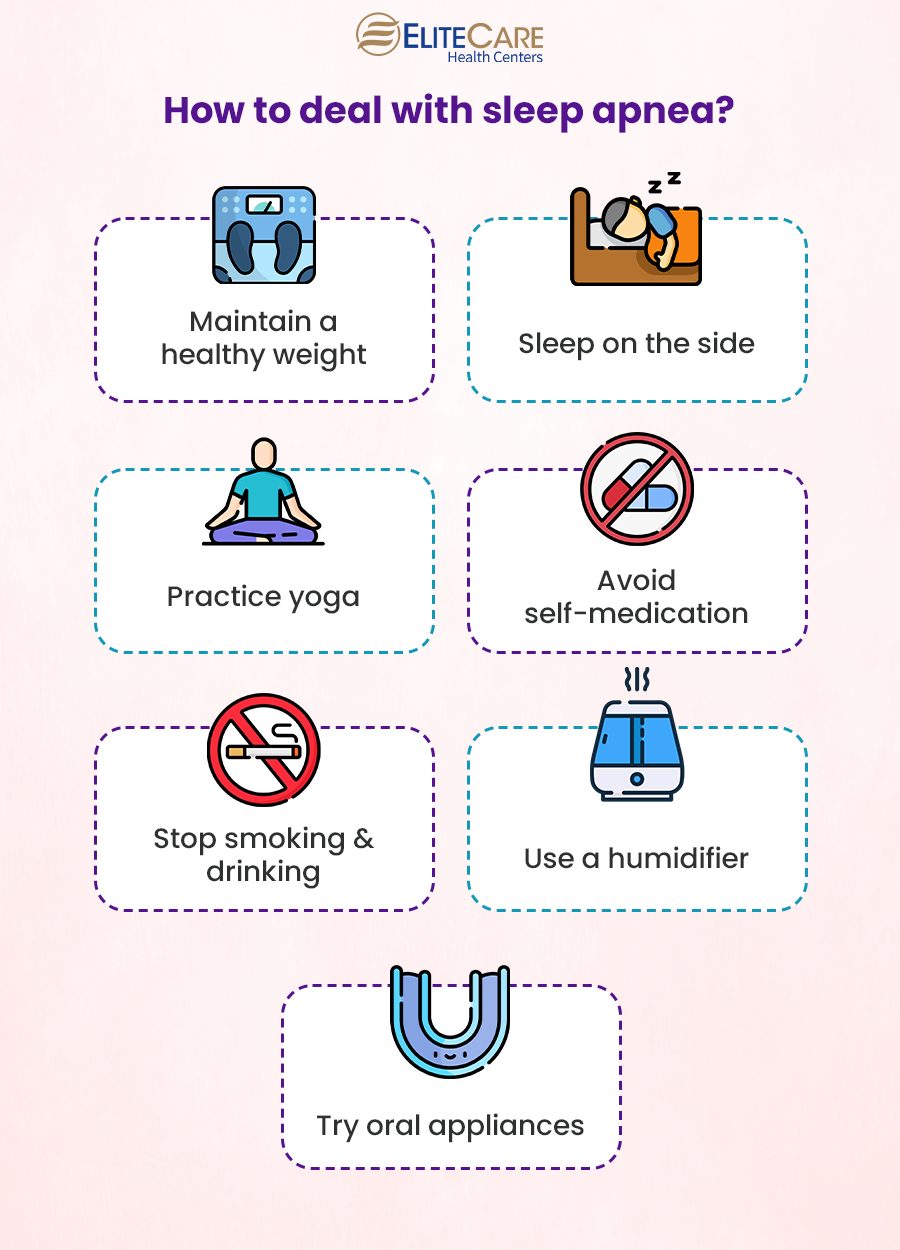
Maintain a healthy weight
Obesity is a primary risk factor for sleep apnea that can increase the risk of airway obstruction and narrow nasal passages. Therefore, losing weight and maintaining a healthy BMI are crucial to treating sleep apnea.
According to researchers, losing 10% to 15% of body weight can reduce the risk of developing severe sleep apnea by 50%. In addition, seniors suffering from this sleep disorder can eliminate the need for upper airway surgery or long-term CPAP therapy if they lose a modest number of pounds. However, regaining weight will increase the possibility of this condition returning.
Alter sleeping position
According to a study, more than half of obstructive sleep apnea cases can be prevented by changing sleeping positions. The supine position can exacerbate symptoms, whereas sleeping on the side can help them breathe normally. It is because sleeping on the side helps keep the airways open during the night. Using wedge pillows will prevent the person from rolling over and resting on their back.
Discuss body positioning during sleep, and the symptoms with the physician to ensure better sleep habits and evaluate the most appropriate options for treatment.
Read More: Common Sleep Problems and Solutions for Elderly
Practice yoga
Physical fitness plays a crucial role in managing the symptoms of sleep apnea. While aerobic exercises like brisk walking or swimming can increase energy levels, and strengthen the heart, yoga can specifically improve respiratory strength and enhance oxygen flow.
Yoga can clear the airways and eliminate the most critical risk factor for sleep apnea- lack of oxygen flow in the body. Therefore, it reduces the number of interruptions seniors may experience while sleeping.
Avoid self-medication
There are a few over the counter as well as prescribed medications that can increase the severity of sleep apnea. Avoid OTC medicines such as antihistamines like diphenhydramine, loratadine, cetirizine, etc. Also, consult with their doctor to avoid prescribed medications such as benzodiazepines, a class of medications used to relieve anxiety. Medicines like opiates and barbiturates can also increase the risk of developing severe sleep apnea.
Stop smoking and drinking
Some lifestyle changes can go a long way to reducing the effects of sleep apnea. Alcohol relaxes the throat muscles controlling breathing and leads to loud snoring. It also causes inflammation in the airways and blocks airflow, increasing the risk of sleep apnea.
Like alcohol, smoking also increases inflammation in the airways which eventually leads to swelling. This can block the airways and interrupt sleep at night.
Use a humidifier
Humidifiers are a great help for those suffering from sleep apnea. Dry air irritates the respiratory system and can cause obstructions in the airways. Humidifiers add moisture to the air and help widen the airways, decrease congestion, and encourage clear breathing. Clean the humidifier at regular intervals according to the manufacturer’s guidelines to prevent any bacterial growth inside the device.
To help seniors breathe better during sleep, consider adding essential oils such as lavender, peppermint, or eucalyptus oil to a humidifier. These oils have anti-inflammatory and soothing benefits that can contribute to deep sleep. Nonetheless, it’s wise to check if seniors are allergic to such oils to prevent an allergic reaction.
Try oral appliances
Oral appliances are of great help for seniors as it helps in repositioning the jaw or tongue to keep the airway open while they sleep. The American Academy of Dental Sleep Medicine encourages the use of oral appliances as an effective therapy for sleep apnea.
Use a tongue stabilizing device that moves the lower jaw or tongue forward and reduces the obstruction in the back of the throat. Also, these appliances are a viable option for the elderly as they are low-cost, over the counter (OTC) options custom-fitted by a dentist. However, consult a doctor before using any oral appliances for seniors.
Summing up
Sleep apnea is a condition that can put the health of older adults at significant risk if left untreated for a prolonged period. Caregivers need to keep a keen eye on the signs and differentiate them from other sleeping disorders. Visit the nearest EliteCare Health Centers and schedule an appointment with our board-certified geriatricians to get the best care for your senior family members.
